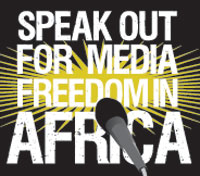
From Cameroon to Kenya, South Africa to Senegal, government reprisals have resulted in imprisonments, violence, threats, and legal harassment. At least two suspicious deaths - one involving an editor, the other a confidential source - have been reported in the midst of government reprisals against probing news coverage.
The region has entered an era of "new challenges to state power," in which both citizens and the press are questioning the use of public funds more than at any time in the half-century since many African nations gained independence, said Ayesha Kajee, executive director of the Freedom of Expression Institute, a South Africa-based group that works against censorship and promotes freedom of information.
"Particularly through investigative journalism, which highlights corruption, nepotism, and 'clientele-ism,' the public sees huge gaps between the majority and the elite," she said. For now, Kajee said, many governments are intent on suppressing in-depth journalism.
There is much at stake in how the conflict plays out. It's partly through the news media that international donors hold policy-makers to account over issues such as good governance, human rights, and the management of profits from resource exploitation. But given the dearth of government information available to the public, African journalists are often forced to resort to confidential sources and leaked documents.
"When you send interview questions, instead of a response, you get contemptuous silence," said Jean-Bosco Talla, a 20-year veteran of the press in Cameroon. "All too often, when we publish something, the people concerned will call us not to deny [the details], but to ask who gave us the information. They threaten us."
And those threats can turn real.
Read the full article on http://cpj.org.